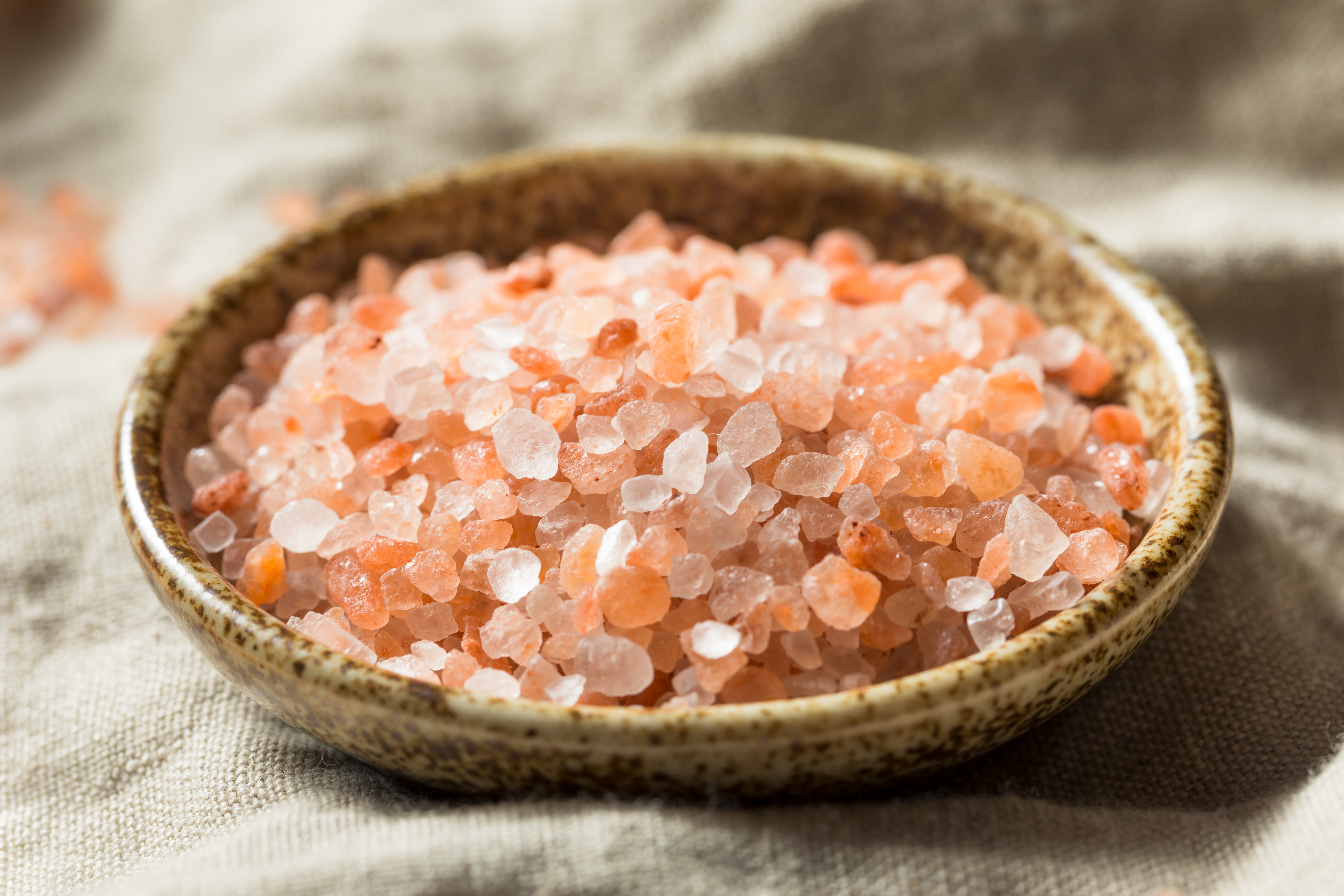12 Best Ways To Boost Low Cortisol Levels Naturally
Cortisol, often called the "stress hormone," is a critical component of our body's ability to manage stress, regulate energy, and maintain overall health. Produced by the adrenal glands, cortisol levels fluctuate naturally throughout the day, peaking in the morning to help you wake up and gradually tapering off by night. However, when cortisol levels are too low—a condition known as adrenal insufficiency or hypocortisolism—it can lead to symptoms such as extreme fatigue, low blood pressure, muscle weakness, and difficulty managing stress. Maintaining healthy cortisol levels is vital for feeling energized, balanced, and resilient in the face of daily challenges. The good news is that there are numerous natural ways to support and elevate low cortisol levels without medical intervention. This article explores 12 science-backed strategies, ranging from dietary adjustments to lifestyle practices, designed to restore hormonal balance, enhance vitality, and promote overall well-being. Ready to take charge of your health? Let’s dive in.
1. Nourish Your Adrenal Glands with Whole Foods

A nutrient-rich diet is essential for supporting adrenal health and maintaining balanced cortisol levels. The adrenal glands require specific vitamins and minerals to produce hormones effectively, and incorporating whole, unprocessed foods into your diet is the best way to provide these nutrients. Foods high in vitamin C, such as oranges, bell peppers, and kiwis, are particularly beneficial because vitamin C is crucial for adrenal function. Similarly, magnesium-rich foods like spinach, almonds, and pumpkin seeds help reduce stress and support overall hormone balance. Omega-3 fatty acids, found in salmon, chia seeds, and walnuts, are also important for reducing inflammation and promoting a healthy adrenal response. Including high-quality proteins like eggs, lean meats, or plant-based options such as lentils and chickpeas can provide the amino acids needed for hormone production. Avoiding processed foods, refined sugars, and excessive caffeine is equally important, as these can place additional stress on your adrenal glands. A well-rounded, nutrient-dense diet is the foundation for restoring cortisol levels and enhancing your body's resilience to stress.
2. Start the Day with a Protein-Packed Breakfast

A protein-rich breakfast is a powerful way to stabilize blood sugar levels and kickstart cortisol production in the morning. Since cortisol naturally peaks early in the day, eating a balanced breakfast that includes protein, healthy fats, and complex carbohydrates can help sustain energy levels and prevent mid-morning crashes. Eggs, Greek yogurt, cottage cheese, or plant-based protein sources like tofu and quinoa are excellent options to include in your morning meal. Pairing protein with fiber-rich carbs, such as whole-grain toast or oats, provides a steady release of energy and keeps you feeling full longer. Adding a handful of berries or avocado can provide extra vitamins and healthy fats to support your adrenal glands. Avoid sugary cereals or pastries that can cause blood sugar spikes, leading to a subsequent drop in energy and cortisol. By prioritizing a nutritious, protein-packed breakfast, you can set the tone for the day and support optimal cortisol levels naturally.
3. Stay Active with Moderate Exercise

Regular physical activity is one of the most effective ways to boost low cortisol levels and enhance overall well-being. Exercise stimulates the release of endorphins, which improve mood and counteract the effects of stress. However, the type and intensity of exercise are key to balancing cortisol levels. Moderate activities like brisk walking, swimming, yoga, or light cycling are ideal for promoting a steady release of cortisol without overstressing the body. Engaging in short bursts of high-intensity workouts can also be beneficial, but overtraining or prolonged, intense exercise can lead to cortisol depletion over time. To find the right balance, aim for 30–45 minutes of moderate activity most days of the week. Exercise not only enhances cortisol production but also supports cardiovascular health, improves sleep quality, and boosts overall energy. Choose activities you enjoy to make movement a consistent and sustainable part of your routine.
4. Prioritize Sleep for Hormonal Balance

Sleep is a cornerstone of hormonal health and plays a critical role in regulating cortisol levels. Cortisol follows a natural circadian rhythm, peaking in the early morning to help you wake up and declining throughout the day to support restful sleep. Disruptions to this rhythm, such as irregular sleep schedules or insufficient sleep, can lead to imbalanced cortisol levels and feelings of fatigue. To optimize sleep, establish a consistent bedtime and wake-up time, even on weekends. Create a calming bedtime routine that includes activities like reading, gentle stretching, or a warm bath. Limit exposure to screens and blue light at least an hour before bed, as this can interfere with melatonin production and disrupt sleep. Ensuring your bedroom is cool, dark, and quiet can also improve sleep quality. By prioritizing restorative sleep, you give your adrenal glands the opportunity to recover and regulate cortisol levels effectively.
5. Embrace Adaptogenic Herbs

Adaptogenic herbs have long been used in traditional medicine to support the body’s ability to adapt to stress and restore hormonal balance. Herbs like ashwagandha, rhodiola, and holy basil are particularly effective for boosting low cortisol levels. Ashwagandha is renowned for its ability to reduce stress and improve energy levels, while rhodiola enhances mental clarity and stamina. Holy basil, also known as tulsi, has calming properties that support adrenal health and resilience. These herbs can be consumed as teas, capsules, or tinctures, making them easy to incorporate into your daily routine. For best results, consult a healthcare provider to determine the right adaptogen and dosage for your specific needs. Adaptogenic herbs not only support cortisol production but also enhance overall stress tolerance, making them an invaluable addition to a cortisol-boosting lifestyle.
6. Manage Stress Through Mindfulness

Chronic stress is one of the leading causes of low cortisol levels. Incorporating mindfulness practices into your daily routine can help mitigate the effects of stress and support adrenal function. Mindfulness involves focusing on the present moment and cultivating a sense of calm and awareness. Techniques like meditation, deep breathing, and progressive muscle relaxation are particularly effective at reducing stress and promoting cortisol balance. Even dedicating 10–15 minutes a day to mindfulness can have a significant impact. Apps and guided meditation programs can provide structure for beginners, while activities like yoga or tai chi combine mindfulness with physical movement for added benefits. Over time, regular mindfulness practice can improve emotional resilience, enhance mental clarity, and support the body’s natural stress response.
7. Get Outside and Absorb Natural Light

Exposure to natural light, especially in the morning, is essential for regulating cortisol production and aligning your circadian rhythm. Natural light helps signal your body to produce cortisol in the morning, providing a natural energy boost. Spend 20–30 minutes outdoors each morning, whether walking, gardening, or simply sitting in the sun. If natural sunlight is limited, especially during winter months, consider using a light therapy box to mimic the effects of natural light. Natural light exposure not only supports cortisol production but also enhances mood and vitamin D synthesis, which is vital for overall health. Incorporating time outdoors into your daily routine can be a simple yet powerful way to elevate low cortisol levels and improve your well-being.
8. Hydrate Strategically Throughout the Day

Hydration is often overlooked but plays a vital role in cortisol regulation. Dehydration places additional stress on the body, potentially impairing adrenal function and reducing cortisol production. Starting your day with a glass of water and maintaining steady hydration throughout the day is essential. Aim for 8–10 cups of water daily, adjusting based on your activity level and climate. Herbal teas, such as chamomile or ginger, can provide hydration while offering calming properties that support cortisol balance. Avoid excessive caffeine, which can lead to dehydration and cortisol spikes followed by crashes. By prioritizing hydration, you can create an optimal environment for cortisol regulation and overall health.
9. Fuel Your Gut with Probiotic Foods

The health of your gut directly influences cortisol production through the gut-brain axis. A healthy gut microbiome supports the production of neurotransmitters and hormones that regulate stress responses. Probiotic-rich foods like yogurt, kefir, sauerkraut, and kimchi promote gut health and enhance nutrient absorption, which is crucial for adrenal function. Pair probiotics with prebiotic-rich foods like garlic, onions, and bananas to nourish beneficial gut bacteria. Supporting your gut health not only boosts cortisol levels but also enhances immunity, digestion, and mood, creating a foundation for overall well-being.
10. Build a Strong Support Network

Positive social connections can significantly impact cortisol levels. Spending time with supportive friends, family, or community groups fosters a sense of belonging and emotional security, which helps regulate stress hormones. Social interactions release oxytocin, a hormone that counteracts stress and promotes relaxation. Prioritize quality time with loved ones or join activities that encourage meaningful connections, such as volunteer work or group fitness classes. By nurturing relationships, you create a supportive environment that enhances emotional resilience and cortisol balance.
11. Add a Pinch of Himalayan Salt

For individuals with low cortisol, a small amount of natural salt can support adrenal function and electrolyte balance. The adrenal glands rely on minerals like sodium to produce hormones, and incorporating Himalayan or sea salt into your diet can provide a gentle boost. Sprinkle it on meals or add a pinch to water for a refreshing, mineral-rich drink. Avoid excessive salt consumption, as balance is key. When used mindfully, natural salts can help restore cortisol levels and support overall adrenal health.
12. Practice Gratitude Daily

Positive thinking and gratitude have profound effects on cortisol regulation. Focusing on the positive aspects of life reduces stress and fosters resilience. Practices like keeping a gratitude journal, expressing appreciation, or visualizing positive outcomes can shift your mindset and promote emotional well-being. By embracing positivity and gratitude, you can create a supportive internal environment that enhances your body’s ability to regulate cortisol naturally. Over time, this practice can lead to improved mood, greater resilience, and a more balanced life.
A Balanced Approach to Cortisol Health

Achieving optimal cortisol levels is about finding balance in every aspect of your life—your diet, exercise, sleep, stress management, and even social connections. As this article highlights, small but intentional changes, such as incorporating nutrient-dense foods, engaging in moderate exercise, and fostering mindfulness, can significantly impact your body’s ability to regulate cortisol naturally. Each of the 12 strategies outlined here is designed to empower you with actionable steps to support your adrenal glands and improve your overall health. Remember, boosting low cortisol levels is not about quick fixes but about adopting sustainable habits that enhance your physical and emotional resilience. Whether you're addressing symptoms of adrenal insufficiency or simply looking to optimize your body's stress response, these techniques provide a holistic approach to hormonal balance. Embrace these natural methods, listen to your body, and take proactive steps toward a healthier, more energetic, and harmonious life.